That ‘Racist’ Prom Dress Debacle Is a Lot More Complicated Than You Think
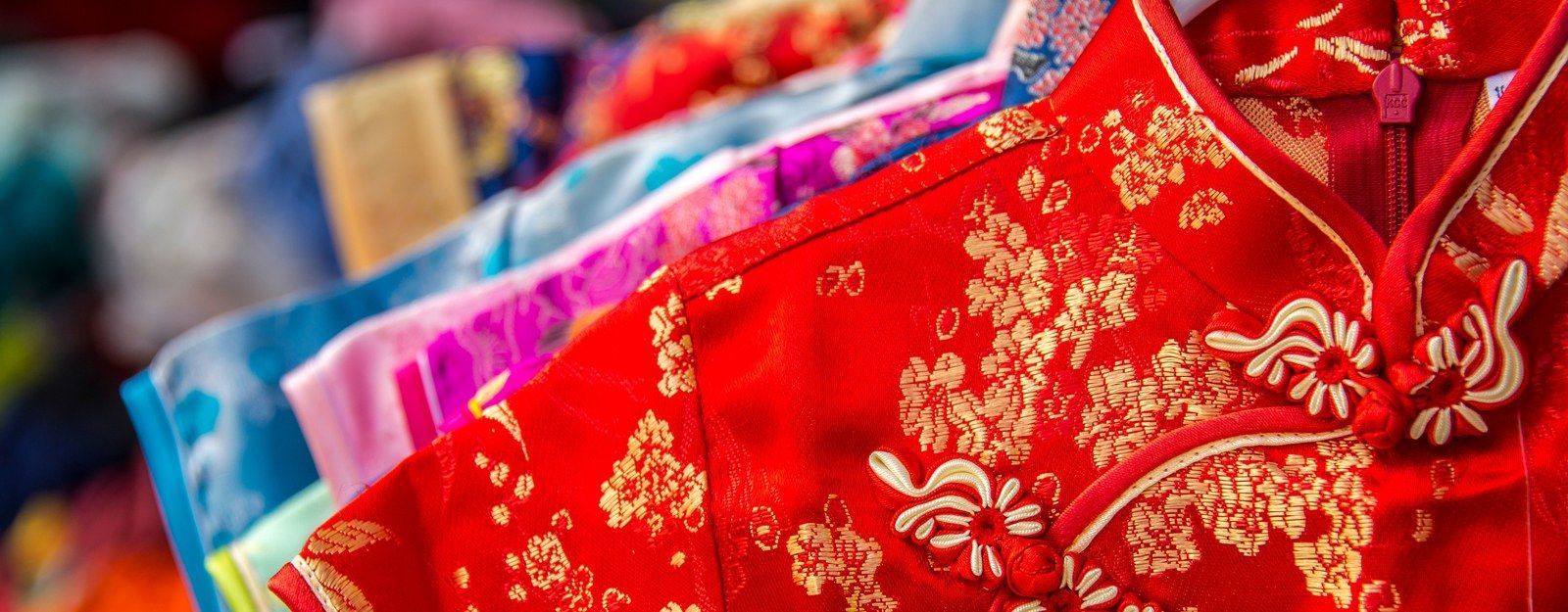
During the past few weeks, a particular news story has sent shockwaves through my personal social network: Keziah Daum, an American teenager, wore a traditional Chinese dress—known as either cheongsam or *qipa,o, depending on whether you speak Cantonese or Mandarin—to her high school prom in Utah. The problem? Daum is not of Chinese descent.
Having moved to London from Hong Kong, I’ve become part of a close-knit community of young Asian women living in the U.K. Since the dress debacle, the WhatsApp group we use to stay in touch has been flooded with a steady stream of articles covering the controversy, as well as screenshots of Daum’s response and people’s outraged reactions. These updates were often shared along with a slew of angry emoji and all-caps responses, to the tune of “How dare she?”
PROM pic.twitter.com/gsJ0LtsCmP
— Keziah (@daumkeziah) April 22, 2018
“I suppose I was frustrated by it mainly because it looks out of context,” says Melissa Legarda, 25, a Filipino British journalist who initially shared the story with the group. “I always have such a skepticism when I see a [non-POC] wearing a dress of another country or tradition that’s not [their own] because most of the time, they don’t appreciate the traditions involved in that culture.” Legarda’s sentiment mirrors the reaction shared by many Asians in the West who have taken to Twitter to voice their dissent. One particular tweet, accusing Daum of cultural appropriation, has been retweeted over 41,000 times at publish time.
On Facebook, where I still keep in touch with my friends from Hong Kong, my feed tells a completely different story. Karen Chiang, one of my Hong Kong–based friends, shared a BuzzFeed article covering the controversy, writing, “This girl rocked it. Full stop.” Other commenters agreed, echoing the effusive feedback thousands of Chinese netizens have shared on Weibo, China’s answer to Twitter. The message was clear: To the Chinese, Daum totally rocked the dress—no offense taken.
“I didn’t think there was a more appropriate or respectful way for a foreigner to pay homage to qipaos and the Chinese culture, especially compared to occasions where Chinese culture is reduced to a fans, dragons, and chopstick-in-a-top-bun kind of moment,” Chiang writes in an email. The 25-year-old wellness blogger and freelance writer grew up in Hong Kong, and has seen many white expats in Hong Kong partake in the aforementioned type of dress—but didn’t see any hints of malice or racism.
“I probably raised an eyebrow [at these people], because they look quite silly most of the time. But as long as people are trying their best to respect and appreciate a culture, I’m cool with it. It’s still better than if they didn’t bother to open their minds at all.”
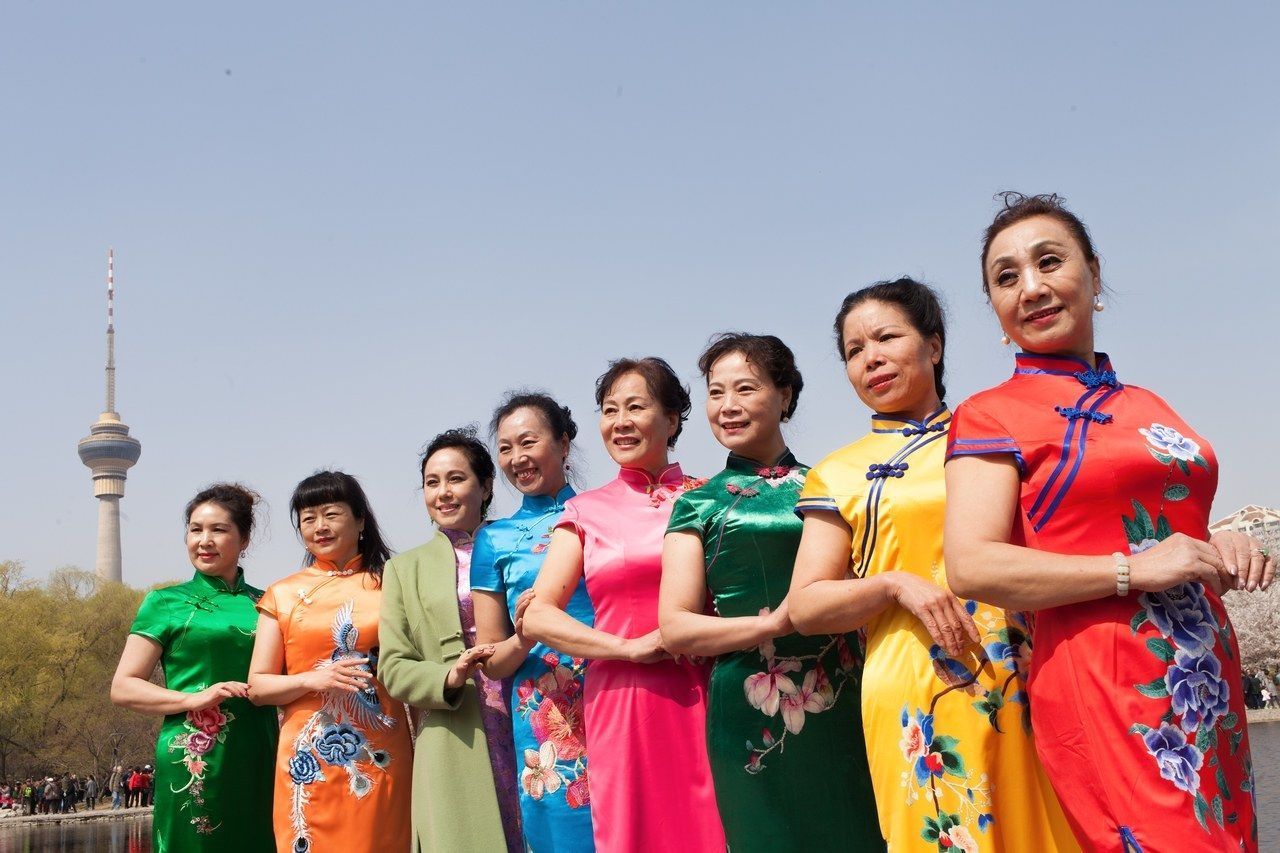
A group of women in Beijing wearing the traditional qipao
Detractors of Daum argued that the group shot of her and her friends made the dress choice even more problematic: The teenagers were photographed squatting while making prayer hands and peace signs, which many perceived as a gesture to mock Asian stereotypes. In a statement to Teen Vogue, Daum has clarified that the pose was not meant to be derogatory but rather a reference to a popular YouTuber.
“It’s obviously a bad idea to adopt the pose, since Daum was already appropriating the qipao, and the pose is very similar to the ‘Asian squat’—a pose] associated with Asian people,” says Isabelle Landicho, a 26-year-old Filipino British stylist and one of my close friends firmly in the disapproving camp. “Obviously, people are going to associate the two factors and be offended! If you’re not an Asian person or not participating in an Asian event or practice, I think it’s a slur.”
I was born and raised in China but have spent most of my young adulthood in the West. I have complicated feelings about this dichotomy of opinion.
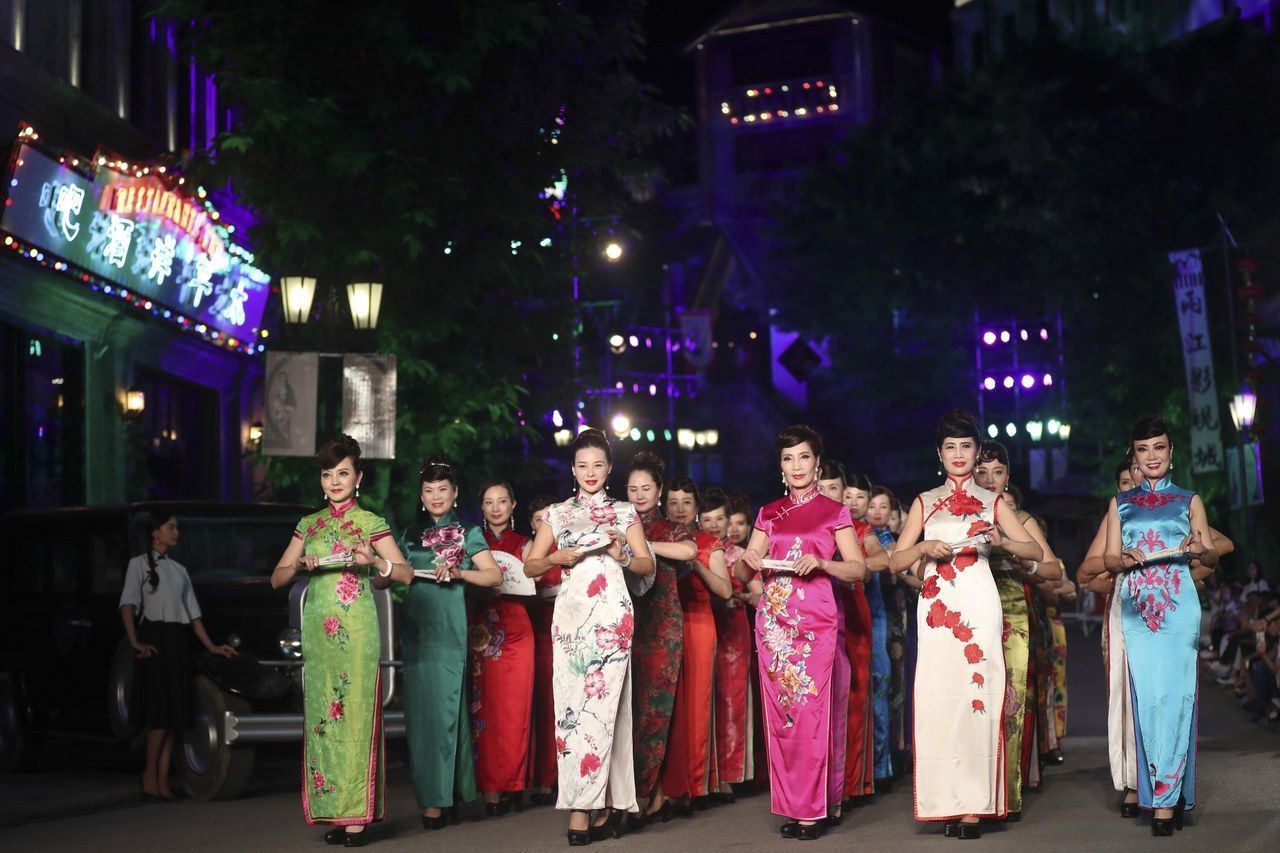
Women participating in a Cheongsam Fashion Show in Chongqing, China, in September 2017
My international experience has opened my eyes to the type of racial prejudice and microaggressions my fellow Chinese and Asian immigrants face daily (not to mention the atrocities of Japanese internment camps and the Chinese Exclusion Act), so I can’t fault my peers in the West for feeling aggrieved by Daum’s decision. It’s easy to perceive her actions as some form of mockery rather than celebration.
Landicho recalled a harrowing incident where, while she was working on set at a photo shoot in London, someone held up a prop that looked similar to the Asian conical hat, put it on, and claimed that now they resembled her.
Legarda admitted that her experience growing up Asian in the U.K. colored her reaction to the prom dress. “If someone had worn a traditional African dress and did a pose, there would be uproar,” she says. “But I feel like Asians and Asian culture are constantly sidelined just because of a race hierarchy within the societal structure.”
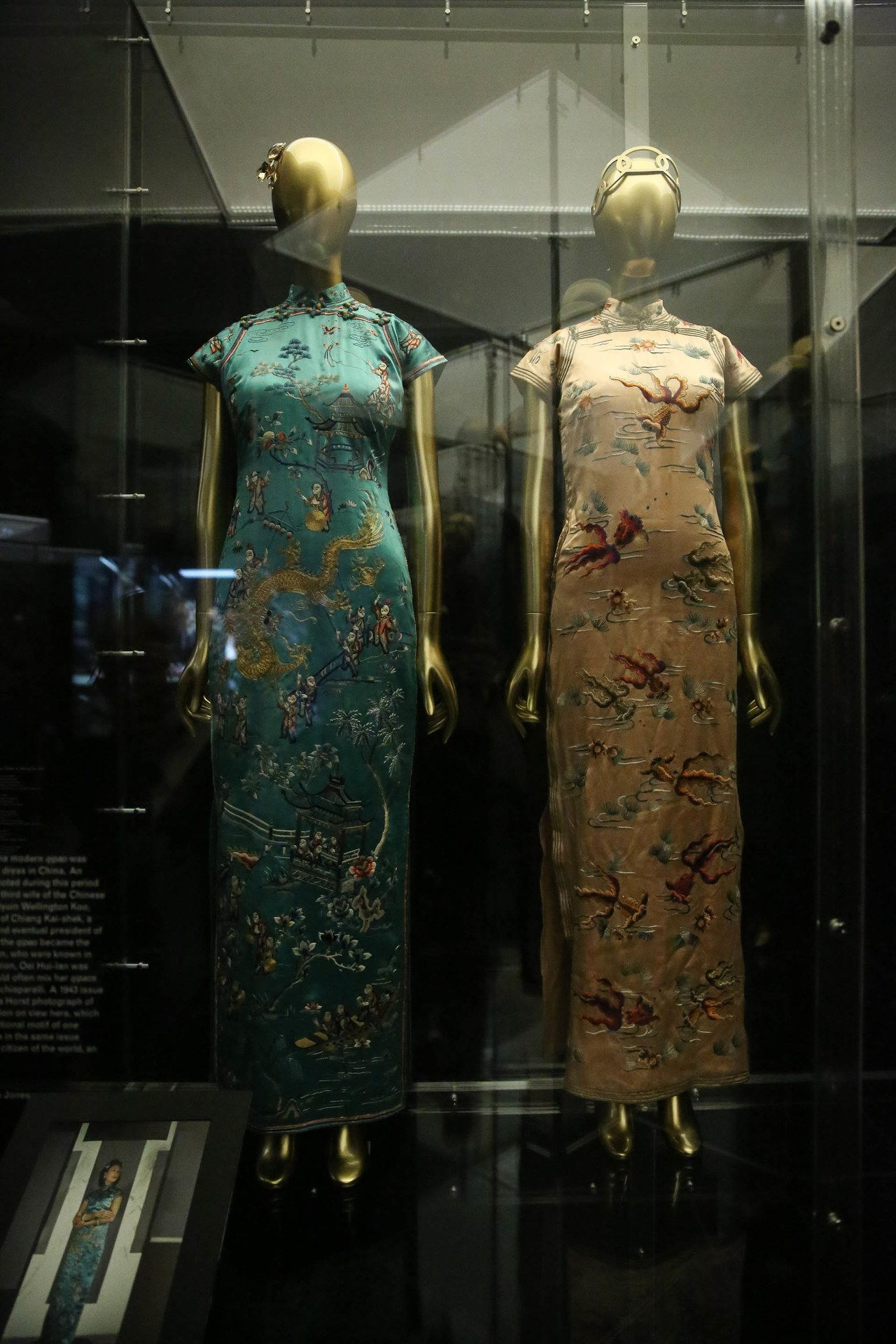
Costumes on display in the Costume Institute’s 2015 “China: Through the Looking Glass” exhibit at the Metropolitan Museum of Art in New York
However, in a community that feels as homogenous as China, where 92 percent of the population is Han Chinese, the intricacies of cultural appropriation might not translate. Ian Tam, a 25-year-old paralegal in Hong Kong, puts it this way: “Chinese culture doesn’t have ‘PC’ culture like American culture does. If we see a person in traditional costume, we just comment on how well it fits them.”
In fact, the Chinese love dressing up in traditional garments from other cultures: Head to any major city in Japan, and you’ll spot a slew of “kimono experience” shops, where you can rent a full kimono for a day. Visitors from China, which accounts for over a quarter of Japan’s tourism, can’t get enough. The potential for a social media photo ops was just too good to pass up.
I was one of those Chinese tourists: On a trip to Japan in 2014, I spent two hours getting into traditional dress, got my hair and makeup done, and visited different shrines of Kyoto all day. Perhaps my East Asian descent gave me more of a “cultural license” to do so. I loved receiving looks of admiration from tourists and onlookers, some of whom asked to take photographs with me. I looked—and felt—like a princess. And if my money benefitted local businesses, then why the hell not support?
Loading
View on Instagram
On paper my intentions didn’t seem all that different from Daum’s. In a follow-up tweet, she claimed her decision to wear a qipao to prom stemmed from her appreciation of Chinese culture. But the more I thought about it, there was one glaring aspect that set us apart: the cultural context.
Before I ever put a kimono on my back, I made sure to be clued in on the cultural dos and don’ts of wearing one—along with the correct praying etiquette at shrines and temples. Even though I did all this to check something off my bucket list, I was intentional about educating myself. Meanwhile, I wasn’t as convinced by Daum’s claims on Twitter: Had she demonstrated any previous interest in learning Mandarin or in gaining a deeper knowledge on the heritage of qipao, I would have gladly been more understanding—instead she referred to the qipao as “a gorgeous dress I found for my last prom” in a tweet, stripping it of its cultural identity until it was time to justify her choice. She also retweeted a meme that essentially positioned herself as a “damned if you do, damned if you don’t” white victim. Then there was that group pose. Pure bad optics.
I’d imagine the reasoning behind my skeptical stance would be lost on most of my compatriots. “China is still very influenced by Western trends: [The Chinese] see it as flattery for the trend leaders to adopt their culture,” writes Chiang.
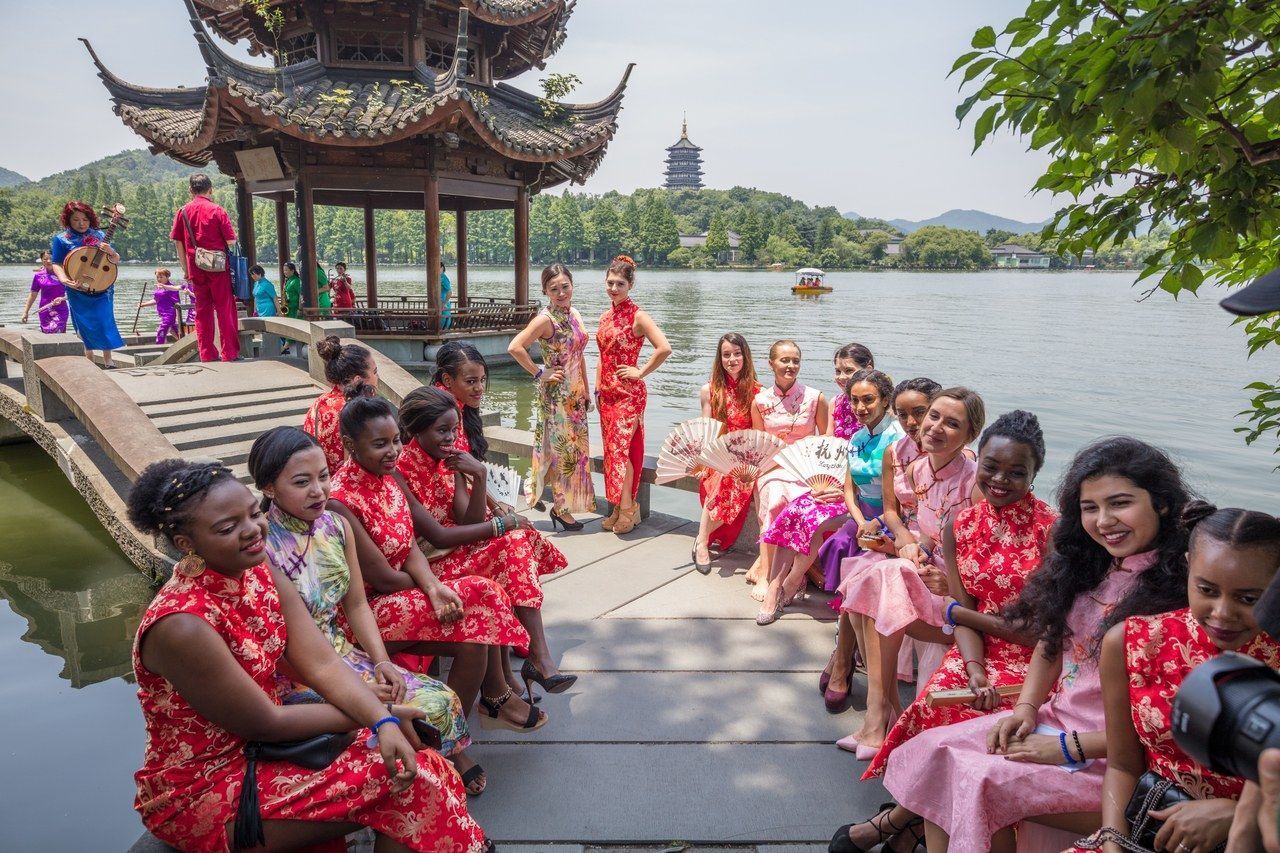
A group of women, both Chinese and foreign, celebrating Hangzhou Global Cheongsam Day in Hangzhou, China, in May 2017
Due to the country’s status as an “uncool” developing country, many in China will immediately reward Westerners for displaying even a modicum of interest in our culture. Just look at Jessie J, the only Western participant to ever compete on Singer, the Chinese version of The X Factor—previously unknown in China, she won by a landslide, gaining half a million followers on Chinese social media along the way. And I can’t even begin to count the number of times white men have approached me online and in real life, uttering “ni hao”—“hello” in Mandarin—despite my native tongue being Cantonese and expecting me to throw myself on them for knowing the simplest greeting in the Chinese language.
I’m not sure if there’s anyone out there who, like me, is also sorting out conflicting feelings on the conversation surrounding Daum’s prom dress. But, just in case there’s someone on the same boat, I felt very understood by this tweet by Jerry Wang, a Chinese American Twitter user in Durham, North Carolina:
I don’t want non-POC to never be able to enjoy the beauty of another culture, least of all my own. However I recommend true understanding of what is being appreciated. I would always suggest researching the name and historical context of a dress like this before sharing publicly.
— Jerry Wang (@MadnessOfJerry) April 29, 2018
Until this becomes the norm, I will probably meet any non-Chinese girl in a qipao with a certain level of apprehension—unless she’s armed with enthusiastic questions about my culture.
Venus Wong is a lifestyle journalist based in London, specializing in travel writing and Asian cultural commentary. Follow her on Instagram: @venuswongisun.

